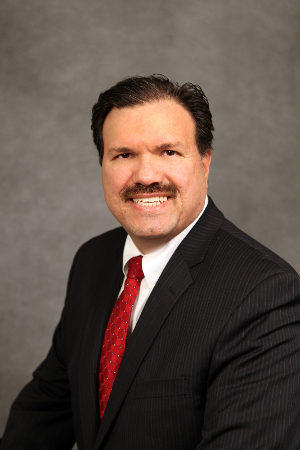 He has almost 29 years of experience in healthcare finance, including his most recent role as CFO of Mary Greeley Medical Center, a 220-bed, city-owned hospital in Ames, Iowa. He was also senior vice president of finance at St. Vincent’s HealthCare in Jacksonville, Fla.
He has almost 29 years of experience in healthcare finance, including his most recent role as CFO of Mary Greeley Medical Center, a 220-bed, city-owned hospital in Ames, Iowa. He was also senior vice president of finance at St. Vincent’s HealthCare in Jacksonville, Fla.
Here, Mr. Tretina talks about his decision to join Bayhealth and what he thinks of the growing push for healthcare price transparency.
Question: What drove your decision to join Bayhealth?
Mike Tretina: Bayhealth definitely demonstrated to me a strong, patient-centered, focused mission, vision and core values. It’s in a growing market, which I liked, and it gets me closer to my family. The primary reasons are the mission, vision, values, growing market and family.
Q: During your years of experience in healthcare finance, what’s the biggest challenge you have faced, and how did you overcome it?
MT: Throughout these 28-plus years, I’ve been fortunate to work at some very strong organizations that have been well-run financially, but there are times and cycles in the economy that impact hospitals dramatically. Stepping up in those times is critical, especially for a finance leader. I found it was a little bit easier in a time of crisis to get aligned with the fellow leaders and initiate operating changes.
At Mary Greeley in 2009, we were able to initiate initiatives that improved the operating margin 8 percent without laying anyone off or affecting employee morale.
We looked at our employee benefits. We looked at our paid time off policies and who we were doing insurance with. We looked at our chargemaster, charge capture, coding denials and concurrent coding. Those are some of the key areas we looked at; we looked at them and were able to make improvements.
Q: Based on your time in the industry, what is the most important piece of advice hospital and health system CFOs need to keep in mind?
MT: I think it’s important to get involved at every level of the organization, to not just be a scorekeeper type but to really collaborate and support operations. A lot of clinical folks don’t have the finance type of skillset, so it’s important to work together. It’s everybody’s job and not just finance’s job when it comes to the fiscal stewardship…but finance is just one piece of the foundation. A focus on quality patient care, service, employee and physician relationships are equally important.
I like to set the bar high, demand accountability in performance and foster a culture of continuous improvement.
Q: What are your fiscal priorities for Bayhealth for 2014?
MT: We aim to serve our patients with the highest level of quality care, with the expectation that our resources will be challenged in the future. From a planning standpoint, we are working on a replacement hospital in Sussex County, which is for Milford Memorial Hospital, and really assessing our capital needs so they align with the continued projection of the growth in Delaware. Furthermore, we are working on becoming a more cost-effective option for our community.
We’re preparing a plan about how we can operate efficiently and effectively in the future because we know the current state of healthcare will change.
Q: During the past year, the public has been pushing for more price transparency, and hospitals have come under fire for their bills and prices. For instance, a bill for a $55,000 appendectomy from a California hospital went viral. What’s your take on this trend, and how do you think hospital and health system CFOs like yourself need to respond?
MT: You see hospitals respond with self-pay discounts, better financial assistance policies. The biggest thing I would do is keep screening procedures such as mammograms and colonoscopies at the lowest possible price so our patients can afford them. Early detection saves lives, and if we impede that, it’s not best for our community. Having screening types of procedures at a low cost and examining the à la carte pricing system in healthcare — for example, charging for Tylenol and Motrin — to see what can be eliminated. Over the years, these items are complained about the most by our patients.
More Articles on Health System CFOs:
Translating and Collaborating: Q&A With Greg Johnston, CFO and Senior Vice President of Baptist Health System
CFO Jill Batty: Bringing Financial Operations Expertise to Cambridge Health Alliance
Finding Strength in the Face of Uncertainty: Q&A With Lincoln County Health System CFO Mike Harbor
